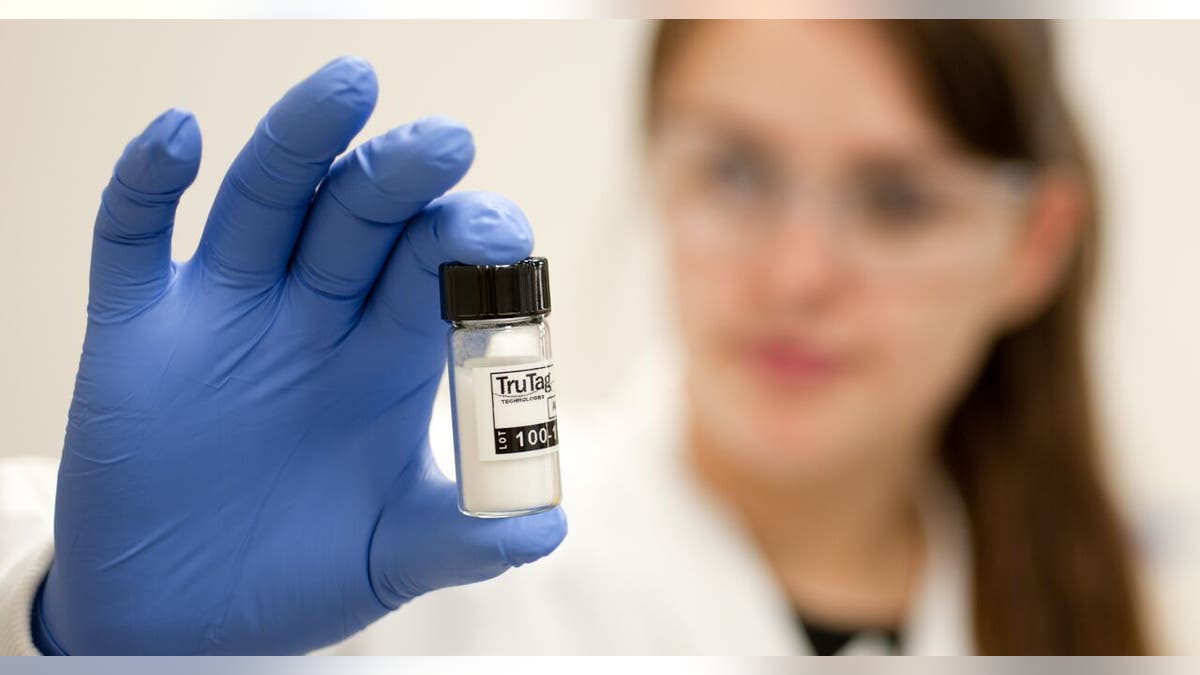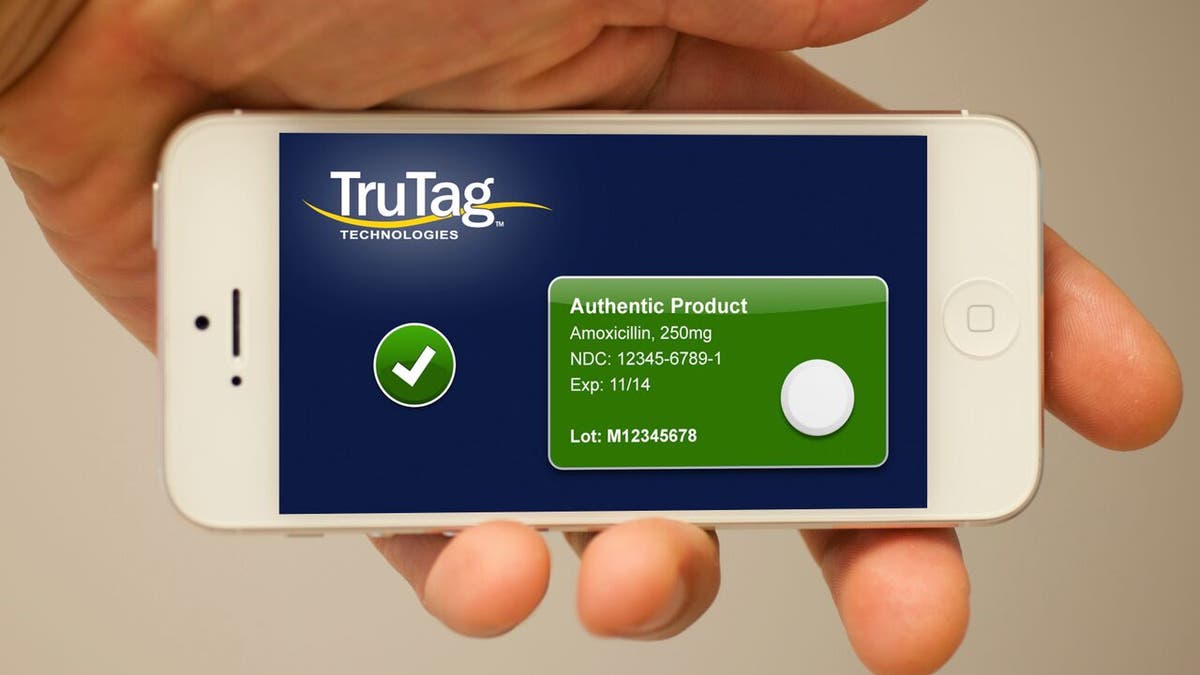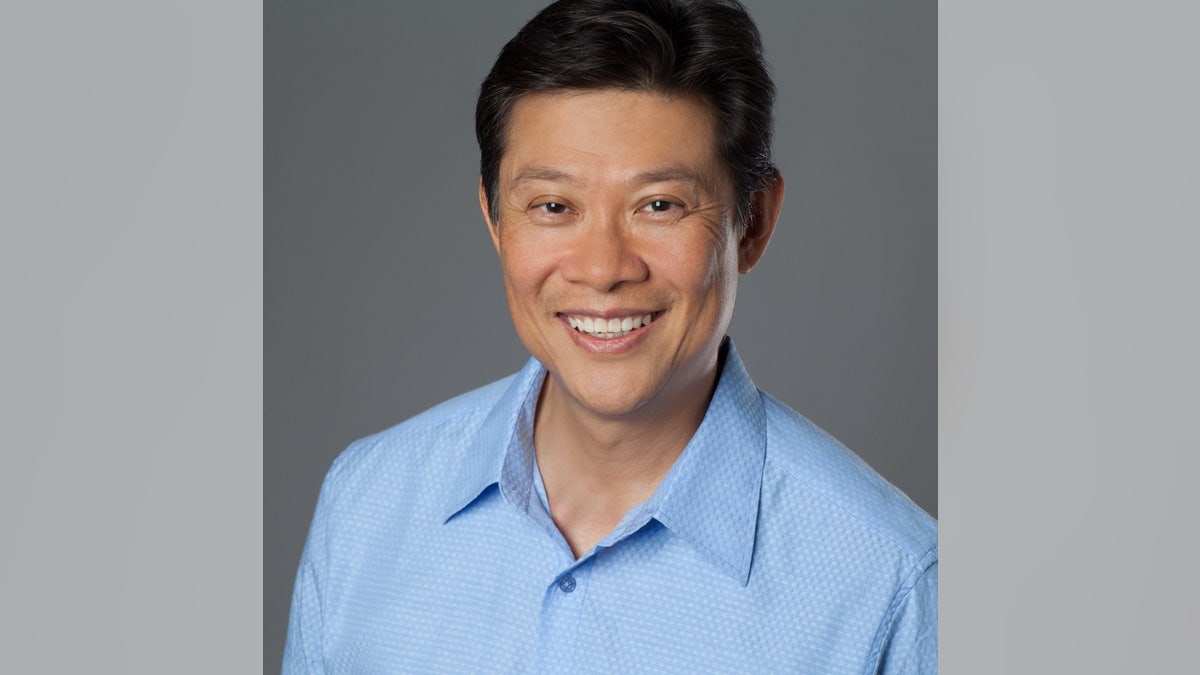
(TruTag Technologies)
Who knew that the answer to fighting the trillion-dollar global counterfeit drug problem rested in a particle the size of a speck of dust? At least that’s what entrepreneur Dr. Hank Wuh is counting on with TruTag Technologies, one of the companies that falls under the larger umbrella of Skai Ventures, the tech-focused venture capital accelerator that he founded. The central idea behind the tech company are “TruTags” - invisible, edible barcodes that can be planted right onto medicine to verify that the pills and tablets you might consume are the real deal.
Back in 2014, the company was named a Technology Pioneer by the World Economic Forum. According to Wuh, a medical doctor, this kind of wider recognition is an indication that these bite-size barcodes could play a role in a tech revolution sweeping through medicine.
“It’s (TruTag) is really a game-changer,” Wuh told FoxNews.com. “This has huge implications for healthcare. Think about healthcare economics, think about public health — it impacts all of those areas. We think of this technology as a tremendous way to sort of improve the system.”

(TruTag Technologies)
The company’s “tags,” which have a melting temperature of 1,600 degrees, contain “millions of combinations of spectral data,” Wuh said. Within each of the tiny particles is an elaborate nanopore structure – think of it as a series of microscopic holes within a thin membrane, small enough for a single molecule to pass through at a given time.
The tags are manufactured “in a secret location in the middle of the Pacific,” Wuh said, half-jokingly, and added that “there’s a very heavy security feature to our business. Manufacturing these structures is part of an elaborate process that involves breaking down the nanopore structures into “uniform-sized particles” that are “completely fabricated and sterilized in one, continuous process.”
Wuh asserted that it is best to liken these tiny structures as specific “fingerprints” or “signatures” of data.
“There are hundreds of millions of signatures and each signature is tied to a database that provides you with a tremendous amount of information,” he said.

Dr. Hank Wuh (© 2013 Tracy Wright Corvo)
Essentially, a drug that has one of these microscopic “signatures” could easily be identified as genuine and not a fake. Wuh said that once the idea for TruTag Technologies was conceived, it took about five years of development to perfect the technology. The tags are FDA-approved to be edible and ingestible.
To illustrate how effective this kind of product could be, Wuh pointed to the over-the-counter and prescription drug and supplement market for senior citizens. While seniors make up just over 13 percent of the U.S. population, they consume 40 percent of all prescription drugs and 35 percent of all over-the-counter drugs. People between the ages of 65 and 69 take about 14 prescriptions per year, while individuals between 80 and 84 years-old take 18 prescriptions annually, according to statistics from the American Society of Consultant Pharmacists.
“Say mom is in the hospital and the nurse comes in with a cup that has seven pills in it. They are out of the package in the cup and there all of these morning pills together,” Wuh said. “Imagine a hospital setting in the future where every one of these pills will be identified, where you could do a few-seconds scan that can tell you which pill is what, if they’re genuine or authentic, when they expired, what the drug interaction would be. With that information you are back in control – think how powerful that is.”
For Wuh, who also has a Masters of Public Health degree from Harvard University, a big component of this company is to empower consumers to understand what they are putting into their bodies, and as a result, make better health decisions.
“We want to be able to watch these billions of items that are present in daily life and identify what they are, who made them — whether they are genuine,” Wuh asserted. “The counterfeiting business is not a victimless crime. Not only are jobs lost, but people’s health is put at risk. Imagine someone being treated for diabetes. You want to make sure they have the right medication.”
In an interconnected world where smartphones and Apple Watches are becoming ubiquitous, Wuh said that a consumer could think of these edible barcodes as an extension of the wearable craze. While the idea for his company sounds like it belongs in science fiction, Wuh said the idea of tiny microscopic particles containing data about a drug is no more far-fetched than someone 20 years ago saying that a person would have a “supercomputer the size of his palm.”
But, with the interconnected age and concerns over personal data, are there any concerns from potential consumers over the idea of ingesting technology that contains so much information? Wuh suggested that those queasy about the idea of literally consuming this kind of data can rest assured.
“There’s no privacy issues at all. We are not tracking anyone . We are only protecting people from products that they are consuming,” he said. “Identification is only at the product level, and once they ingest it — once it’s in your body – it’s not retrievable, not traceable. There is really an impenetrable firewall between your body and the information that you are getting from the product.”
Wuh said that there has been avid interest in the technology, that the tags are “starting to get adopted” and that a lot of the company’s “customers are very security oriented.” Interest has spanned the globe, with companies approaching TruTag from the U.S., Europe, and Asia.
Another sector that has expressed interest is law enforcement.
Wuh said that the current process of determining whether or not a drug is a counterfeit is “really quite tedious.” For example, say law enforcement seizes what is perceived to be a counterfeit of a drug like Sovaldi, which is used to treat hepatitis. The law enforcement has to ship it by express mail to a lab that then has to process the drug and run a series of tests. A report is generated and the “final results could come back a week or 10 days later,” he explained.
It’s an inefficient process that could be substantially improved upon, Wuh claimed.
“I think ‘democratization’ is the perfect way to describe what we are trying to achieve,” Wuh said. “Knowledge is power and people want to know about the products they are consuming.”
